
What is HR Software and How to Pick the Best Fit For Your Business
In the dynamic world of business, efficient human resource management is a cornerstone for success. With the evolution of technology, this critical function has seen a significant shift, giving rise to the indispensable tool known as HR Software. Let’s delve into understanding what HR Software is and how you can choose the optimal solution for your enterprise.
Understanding HR Software
HR Software, or Human Resource Software, is a digital solution that combines various systems and processes to ensure the effortless management of a business’s employees and data. This software automates tasks, streamlines workflows, and enhances the management of human resources, payroll, recruitment, and more.
HR software is not just a tool but a comprehensive solution designed to improve and streamline human resource management in various aspects. Let’s delve deeper into the operational side of HR software, its comparison to manual HR management, and the compelling reasons why it’s an indispensable asset for businesses today.
How is HR Software Used?
HR software is used to perform a myriad of tasks that would traditionally require considerable time and resources. It streamlines administrative processes by automating tasks like payroll processing, attendance tracking, and benefits administration. This software enables a smooth recruitment process by managing job postings, applicant tracking, and onboarding. Furthermore, it enhances employee development through learning management systems and performance evaluations.
With HR software, businesses can access centralized employee data, making it easier to make informed decisions. Managers can analyze this data to gain insights into employee performance, satisfaction, and retention, helping them make strategic decisions to enhance productivity and morale.
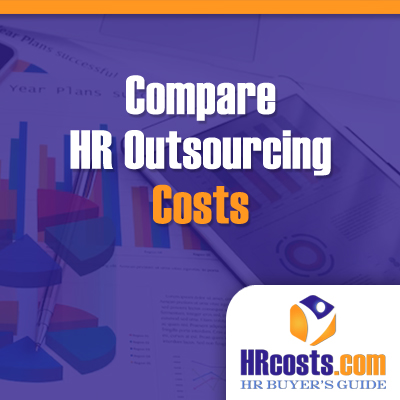
HR Software vs. Manual Management
When compared to manual HR management, the benefits of HR software become starkly evident. Manual processes are not only time-consuming but are also prone to errors, leading to compliance issues and operational inefficiencies.
- Efficiency: While manual management requires substantial effort for each task, HR software automates most processes, freeing up time for HR professionals to focus on strategic activities.
- Accuracy: The automation provided by HR software significantly reduces the chance of human error, ensuring more accurate payroll processing, attendance tracking, and benefits administration.
- Data Access and Analysis: HR software allows for the easy retrieval and analysis of employee data, which is a cumbersome task when managed manually.
- Compliance Management: HR software is updated with the latest legal standards, ensuring that your business stays compliant, whereas manual management requires constant vigilance to stay up-to-date with laws and regulations.
Why is HR Software Needed?
- Comprehensive Employee Management: HR software allows businesses to manage every aspect of employee management cohesively from a single platform. This holistic approach enhances coordination and ensures that no aspect is overlooked.
- Enhanced Decision Making: The ability to easily access and analyze employee data allows businesses to make informed decisions to enhance operations and employee satisfaction.
- Cost-Efficiency: By streamlining operations and reducing the time and resources required for HR tasks, businesses can realize significant cost savings.
- Improved Employee Experience: HR software enables efficient and transparent processes, contributing to better employee satisfaction and engagement.
The Integral Role of HR Software
In a world where businesses are continuously seeking ways to improve efficiency and productivity while reducing costs, HR software stands out as an invaluable tool. Its comprehensive capabilities, from recruitment to payroll, from performance evaluation to compliance management, make it essential for modern businesses.
By automating tasks, reducing errors, and providing quick access to crucial data, HR software not only enhances operational efficiency but also contributes to better strategic decision-making and improved employee satisfaction. The comparison with manual management underscores the significant advantages in terms of time, cost, and accuracy, making the case for HR software even more compelling. In the landscape of HR management, software solutions are not just a luxury but a necessity, enabling businesses to navigate the complexities of human resource management with ease and confidence.
Enhancing Legal Compliance
One significant aspect that HR software simplifies is ensuring that the company’s HR processes comply with federal and state laws. Non-compliance with labor law, equal employment opportunity laws, workplace safety regulations, and other legal requirements can result in hefty fines and damage to the company’s reputation.
HR software helps in managing and monitoring various compliance-related aspects, such as employee contracts, labor law compliance, and reporting requirements. It assists organizations in staying updated with the latest legal regulations, ensuring they are always compliant and avoiding potential legal complications.
According to a report by SHRM (Society for Human Resource Management), keeping up with regulations and laws is one of the major challenges faced by HR professionals. HR software aids in mitigating this challenge by providing timely updates and ensuring all processes are in line with the current legal standards.
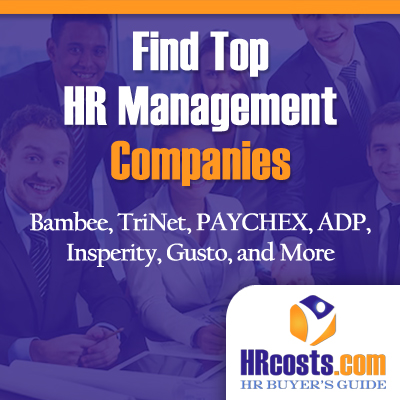
Advantages of Using HR Software
HR software offers an array of benefits:
- Efficiency: It automates administrative tasks, reducing paperwork and saving time.
- Accuracy: It minimizes the risk of errors in payroll and HR processes.
- Employee Self-Service: It allows employees to access and manage their information, promoting transparency and engagement.
- Compliance Management: It helps in ensuring that businesses adhere to regulatory standards.
- Data Management and Analytics: It organizes vast amounts of employee data and provides insights for better decision-making.
HR software inherently has an edge over manual management in numerous ways. Below, we explore these advantages further by providing practical examples to illustrate how implementing HR software can directly and positively influence the workplace environment.
Streamlined Recruitment Process
Example: Consider a scenario where a company is hiring for multiple roles. Manually sorting through hundreds, possibly thousands of applications, is a herculean task that is not only time-consuming but also prone to oversight and errors.
HR Software Advantage: HR software can automatically sort and filter applications based on predetermined criteria, ensuring that only the most suitable candidates are considered. This leads to a more efficient and effective hiring process, ensuring that vacancies are filled by the right candidates in a timely manner.
Automated Payroll and Benefits Administration
Example: Manual payroll processing and benefits administration can be a nightmare, given the complex calculations and various compliance aspects involved. Errors in this domain could lead to serious legal complications and employee dissatisfaction.
HR Software Advantage: HR software automates these processes, ensuring accuracy, timeliness, and compliance, leading to satisfied and motivated employees who are assured of receiving their due compensation and benefits without delays or mistakes.
Enhanced Learning and Development Opportunities
Example: Providing employees with growth and learning opportunities is crucial for maintaining a skilled, motivated workforce. Manual management of training programs, skill development initiatives, and performance evaluations can be challenging and inefficient.
HR Software Advantage: With HR software, companies can easily manage and track employee development programs, ensuring that employees have timely access to learning resources and opportunities. This is not only beneficial for employee morale and satisfaction but also contributes to the overall growth and competitiveness of the organization.
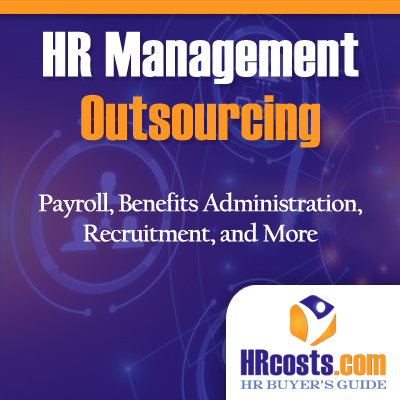
Efficient Attendance and Leave Management
Example: Manually tracking employee attendance, leaves, and other time-off requests can be cumbersome and often results in conflicts and errors.
HR Software Advantage: HR software effortlessly manages attendance and leave, ensuring that employee time is accurately tracked. This allows for a fair, transparent system where employees are accountable for their time, leading to a more productive and harmonious work environment.
Data Security
Example: Employee records contain sensitive information that must be securely managed. Manually handling such data, which is often stored in physical files, is vulnerable to unauthorized access, loss, and damage.
HR Software Advantage: HR software provides robust data security features, ensuring that employee information is protected against unauthorized access, loss, or damage. Secure data management not only ensures compliance with data protection regulations but also contributes to building trust among employees.
Towards a Progressive Work Environment with HR Software
HR software significantly outperforms manual HR management by enhancing efficiency, ensuring accuracy and compliance, and contributing to a more positive, productive work environment. Through practical examples, it’s clear to see how HR software impacts various facets of HR management, leading to streamlined operations and a more satisfied, engaged workforce.
Organizations making the shift from manual HR management to advanced HR software can look forward to tangible improvements in HR operations and overall organizational performance, ultimately paving the way for sustained growth and success in a competitive business landscape.
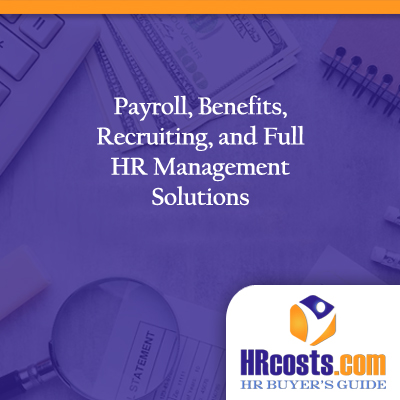
Factors to Consider When Choosing HR Software
Assess Your Business Needs
Before diving into the market of HR software, thoroughly evaluate your business requirements. Identify the areas in your HR process that need automation or improvement.
Features
Look for software that offers features catering to your specific needs, such as payroll processing, recruitment and applicant tracking, employee performance management, and benefits administration.
Budget
Determine the budget you can allocate for the HR software. Be sure to consider the return on investment, focusing on how the software will enhance efficiency and reduce costs in the long run.
User-Friendliness
Choose software that is intuitive and easy to use to ensure seamless integration into your existing systems, and ensure employees can effectively use it without extensive training.
Scalability
Select a solution that can grow with your business. Ensure the software can handle an increase in user load and additional features as your business expands.
Vendor Support and Training
Opt for vendors who offer robust customer support and training services to assist you in navigating the software and troubleshooting issues.
Security
Ensure the software complies with security standards to safeguard your sensitive employee data.
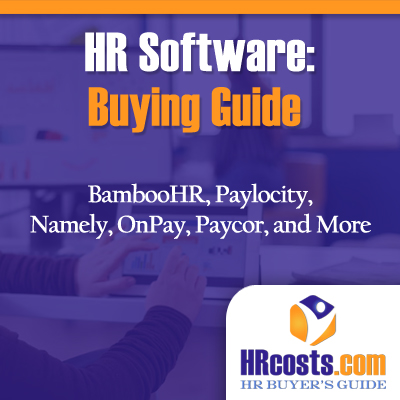
When considering the transition to HR software, choosing the right solution that aligns with your business needs is crucial. Below is a curated list of the top 10 HR software solutions in 2023, providing an array of functionalities tailored to various organizational needs.
1. Workday
- Key Features: Comprehensive human capital management, financial management, and planning solutions.
- Best For: Large enterprises seeking robust, scalable HR software solutions.
2. BambooHR
- Key Features: Easy-to-use HR software for small to medium-sized businesses, offering applicant tracking, onboarding tools, e-signatures, and performance management.
- Best For: Small to medium-sized businesses.
3. ADP Workforce Now
- Key Features: All-in-one platform for payroll, time, benefits, and talent management.
- Best For: Medium to large businesses seeking comprehensive HR solutions.
4. SAP SuccessFactors
- Key Features: Extensive HR solutions including core HR and payroll, talent management, and employee experience management.
- Best For: Large enterprises and multinational corporations.
5. Zenefits
- Key Features: An all-in-one HR platform with comprehensive tools for payroll, benefits, compliance, and performance management.
- Best For: Small to medium-sized businesses.
6. Rippling
- Key Features: Employee management platform focusing on payroll, benefits administration, and applicant tracking.
- Best For: Businesses of all sizes looking for a flexible HR solution.
7. Ultimate Software’s UltiPro
- Key Features: Comprehensive HR, payroll, and talent management solution.
- Best For: Medium to large businesses.
8. Namely
- Key Features: Full-suite platform for HR, payroll, benefits, and talent management.
- Best For: Mid-sized companies.
9. Paycor
- Key Features: Human capital management software with functionalities for recruiting, hiring, and onboarding.
- Best For: Small to medium-sized businesses.
10. Kronos Workforce Ready
- Key Features: Unified human capital management and workforce management solution.
- Best For: Small to medium-sized businesses.
Each of these HR software solutions has its own unique features and advantages, and the best choice will depend on your business’s specific needs, size, and budget. Conduct an in-depth assessment and take advantage of free trials to make an informed decision. Ensure the software you choose aligns with your organizational goals and is scalable to adapt to future growth and changes.
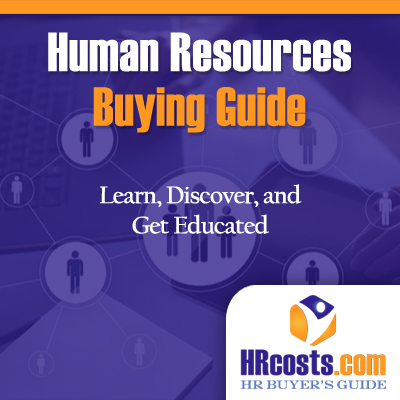
Conducting a Trial Run
Most vendors offer a trial period for their software. Utilize this opportunity to evaluate the software’s functionality, ease of use, and how well it aligns with your business needs.
Choosing the right HR software is a substantial investment in your business’s future growth and efficiency. By considering your unique requirements, budget, and ensuring robust vendor support, you can select a solution that seamlessly integrates into your operations, enhancing productivity and ensuring optimal HR management.
How Much Does HR Software Cost?
HR software costs can vary widely based on the features, scalability, and provider. On average, you can expect to pay anywhere from $6 to $12 per employee per month for basic HR software solutions. For more advanced platforms offering an extensive range of features including payroll, recruiting, and performance management functionalities, the costs could range from $20 to $40 per employee per month. Larger enterprises with complex needs may end up investing even more.
Factors Affecting HR Software Cost:
- Number of Users: Generally, the more employees you have, the higher the cost. Some providers may offer tiered pricing or volume discounts.
- Features: Advanced features and additional modules (like recruiting, performance management, or learning and development) will typically cost more.
- Implementation: Setup and implementation fees can also add to the initial investment.
- Customization: Customizable solutions might incur additional charges.
- Support and Training: Consider if there are additional costs for support and training.

Finding the Most Affordable HR Software:
To find the most affordable HR software, it’s vital to clearly understand your business’s needs and budget constraints. Here are some strategies:
- Prioritize Essential Features: Identify and prioritize the features that your business absolutely needs. Avoid paying for additional functionalities that your business may not use.
- Take Advantage of Free Trials: Many providers offer free trials. Use this opportunity to assess the software’s ease of use, features, and customer support.
- Read Reviews: Online reviews can provide insights into other users’ experiences with the software, including its cost-effectiveness and return on investment.
- Request Proposals: Reach out to various providers for customized quotes and compare the costs and offerings.
- Consider Future Scalability: Choose a software that can grow with your business to avoid future costs related to switching providers.
While cost is an important factor, ensuring that the HR software meets your organizational needs and enhances operational efficiency is paramount. It’s an investment towards streamlining your HR processes, improving employee experience, and ultimately contributing positively to your business’s growth and success.

Decreasing Error and Protecting Your Business with HR Software
In the contemporary business world, human errors, while understandable, can have far-reaching financial and reputational impacts on your business. Implementing HR software is a pivotal step in significantly reducing errors and protecting your business from costly mistakes. Below, we delve deeper into the ways HR software accomplishes this.
1. Automated Payroll Processing:
Payroll errors can lead to significant financial loss and employee dissatisfaction. HR software automates payroll processing, ensuring accurate and timely employee payments. It considers all aspects including deductions, bonuses, and other variables, mitigating the chances of human error.
2. Compliance Management:
Staying compliant with labor laws and industry regulations is paramount. Non-compliance can lead to legal issues, fines, and damage to your business reputation. HR software keeps you updated on relevant laws and regulations, helping ensure your business practices remain compliant, thereby avoiding costly legal complications.
3. Accurate Reporting:
Accurate reporting is crucial for informed decision-making. HR software provides robust tools for generating various reports related to employees, finances, and other HR-related data, ensuring the reports are accurate and comprehensive, which helps in making data-driven decisions.
4. Streamlined Benefits Administration:
Benefits administration is a complex task. Mistakes in benefits administration can lead to employee dissatisfaction and potential legal issues. HR software streamlines this process, ensuring benefits are administered correctly and efficiently.
5. Effective Time Tracking and Attendance Management:
Errors in time tracking and attendance can lead to payroll errors and decreased employee morale. HR software effectively tracks employee time and attendance, ensuring employees are compensated accurately for their time.
6. Reduced Data Entry Errors:
HR software eliminates the need for redundant data entry, significantly reducing the chances of data entry errors which can have various adverse impacts on the business.
The implementation of HR software is not just a strategic move for efficiency and organization; it’s a protective measure to safeguard your business from potentially expensive errors and oversights. An upfront investment in a robust HR software can save your business a significant amount of time, resources, and money in the long term by reducing errors and ensuring accuracy and compliance in all HR processes. In essence, it’s an investment in the sustained growth and protection of your business.

Efficient Recruitment Process with HR Software
A significant advantage of HR software is the efficiency and effectiveness it brings to the recruitment process. Recruiting is a comprehensive task involving numerous steps from job posting to interviewing and hiring the right candidate. Let’s explore how HR software aids in refining the recruitment process.
Streamlined Job Posting:
HR software allows businesses to post job openings on multiple platforms with a single click, ensuring a wider reach to potential candidates and saving considerable time and effort.
Efficient Application Sorting:
Sifting through countless applications can be time-consuming and overwhelming. HR software automates this process, efficiently sorting through applications and highlighting the most suitable candidates based on the criteria set by the recruiter.
Seamless Communication:
Keeping candidates informed at every step of the recruitment process is crucial. HR software facilitates seamless communication with applicants, sending automated responses to applications, and scheduling interviews, enhancing the overall candidate experience.
Comprehensive Candidate Profiles:
HR software allows recruiters to create comprehensive candidate profiles, consolidating all relevant information, interview notes, and feedback in one place for easier access and evaluation.
Effective Onboarding:
A smooth onboarding process is essential for new employees to integrate successfully into the company culture. HR software streamlines the onboarding process, ensuring all necessary documentation is completed, and new hires have access to all the information they need.

Ensuring Employee Satisfaction and Engagement
Employee satisfaction and engagement are paramount for any business’s success. HR software plays a significant role in ensuring employees feel valued and engaged in their roles.
Regular Feedback and Appraisals:
HR software facilitates regular feedback and performance appraisals, allowing employees to understand their strengths, areas for improvement, and career progression paths.
Easy Access to Information:
Employees have easy access to personal information, benefits, policies, and other relevant data, ensuring transparency and promoting a sense of ownership and involvement.
Effective Training and Development:
HR software assists in identifying employee training and development needs, ensuring employees have access to the resources and opportunities they need to grow and excel in their roles.
From enhancing the recruitment process to ensuring employee satisfaction and engagement, HR software is a comprehensive solution for businesses looking to streamline their HR processes, reduce errors, and promote a healthy, engaging, and inclusive workplace environment. The multitude of functionalities offered by HR software not only simplifies HR management but also contributes positively to the overall growth and success of the business. Investing in the right HR software is indeed investing in the future and stability of your business.
